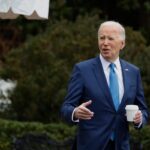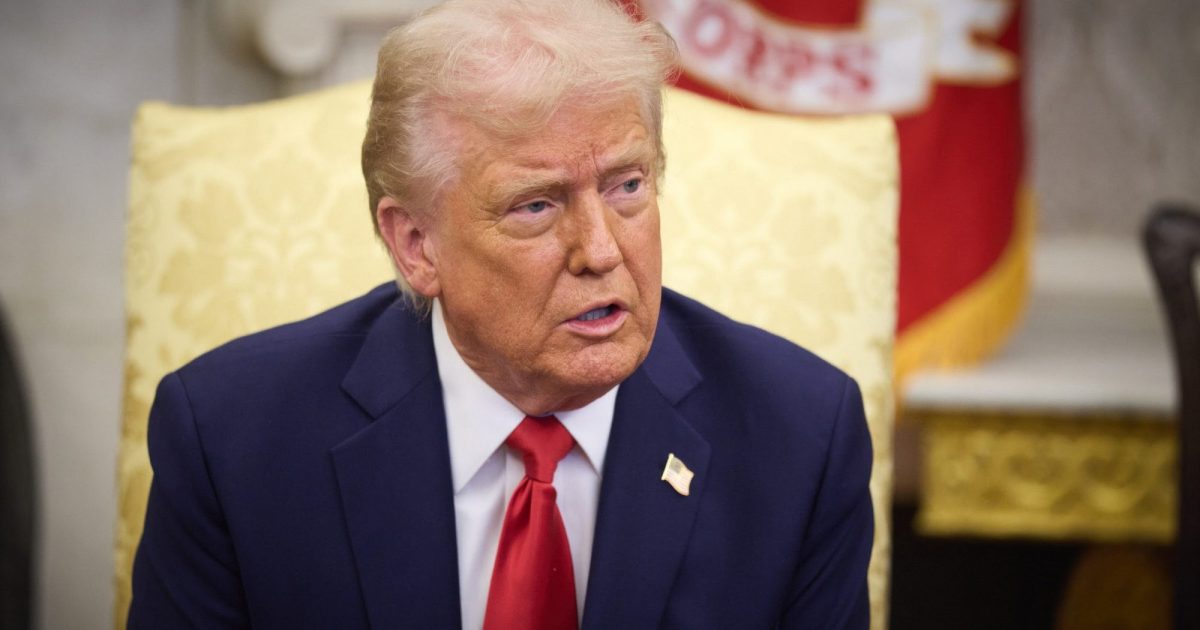After President Donald Trump announced last month that the United States would impose a baseline 10-percent tariff on much of the world—with far higher rates for a set of other countries—economists warned that consumers would feel the impacts on a variety of products, including groceries, coffee, and cars.
But the Trump administration has tried a whole range of tactics to gaslight Americans into believing that would not happen—including claiming that the tariffs are, in the words of White House Press Secretary Karoline Leavitt, “a tax cut for the American people” and that they will help improve domestic manufacturing. After reports suggested that Amazon planned to list the costs that tariffs were adding to products on its retail website, the White House called it a “hostile and political act”—and Amazon seemed to quickly reverse course. (Since Trump’s initial rounds of tariffs were announced, the exact details of them have shifted repeatedly—and much of the increase has been paused. Last week, the US and China agreed to temporarily lower the high tariffs both countries had placed on the other; on Friday, Trump said the US would soon begin informing countries of their new tariff rates.)
On Thursday, Walmart became the latest company caught in Trump’s crosshairs after its CEO, Doug McMillon, admitted that the president’s tariffs would cause the retail giant to raise prices. On an earnings call, McMillon said “the higher tariffs will result in higher prices.”
“We will do our best to keep our prices as low as possible, but given the magnitude of the tariffs, even at the reduced levels announced this week, we aren’t able to absorb all the pressure given the reality of narrow retail margins,” McMillon said on the call.
Predictably, this triggered Trump. On Saturday morning, he took to his social media platform, Truth Social, to try to bully Walmart into reversing course. “Walmart should STOP trying to blame Tariffs as the reason for raising prices throughout the chain,” Trump wrote. “Walmart made BILLIONS OF DOLLARS last year, far more than expected. Between Walmart and China they should, as is said, ‘EAT THE TARIFFS,’ and not charge valued customers ANYTHING. I’ll be watching, and so will your customers!!!”
On CNN’s State of the Union on Sunday, Treasury Secretary Scott Bessent told Jake Tapper that he spoke to Walmart’s CEO on Saturday, adding, “Walmart will be absorbing some of the tariffs, some may get passed on to consumers.” A source familiar with the situation told Mother Jones that Bessent’s call with McMillon was scheduled prior to Trump’s comments on Truth Social. But beyond that, details of Walmart’s plans remain unclear.
Treasury @SecScottBessent says he spoke to Walmart’s CEO after the company warned of price increases due to tariffs: “Walmart will be absorbing some of the tariffs, some may get passed on to consumers.” pic.twitter.com/FGQ4154SNT
— State of the Union (@CNNSOTU) May 18, 2025
Some Republicans have also been voicing dissent over Trump’s tariffs. In an interview on NBC’s Meet the Press Sunday, former Vice President Mike Pence called Trump’s initial round of tariffs “the largest peacetime tax hike on the American people in the history of this country.” Pence added that he was glad Trump had partially paused those tariffs. And Sen. Rand Paul (R-Ky.) said on This Week on ABC Sunday, in response to a question about Walmart: “Tariffs are taxes, and when you put a tax on a business, it’s always passed through as a cost. So, there will be higher prices.” Paul added: “Most tariffs in our history have been passed by Congress. We’ve never had widespread tariffs that have been done by fiat by a president, and I object to that.”
The takeaways from this latest debacle? Contrary to the Trump administration’s claims, tariffs do raise taxes on consumers. And unlike Jeff Bezos, Walmart’s CEO is apparently willing to admit that. But in doing so, he unleashed Trump’s wrath—and made clear that, as my colleague Pema Levy previously wrote, “With tariffs, Trump is poised to trade a strong economy for one run on loyalty and retribution.”















